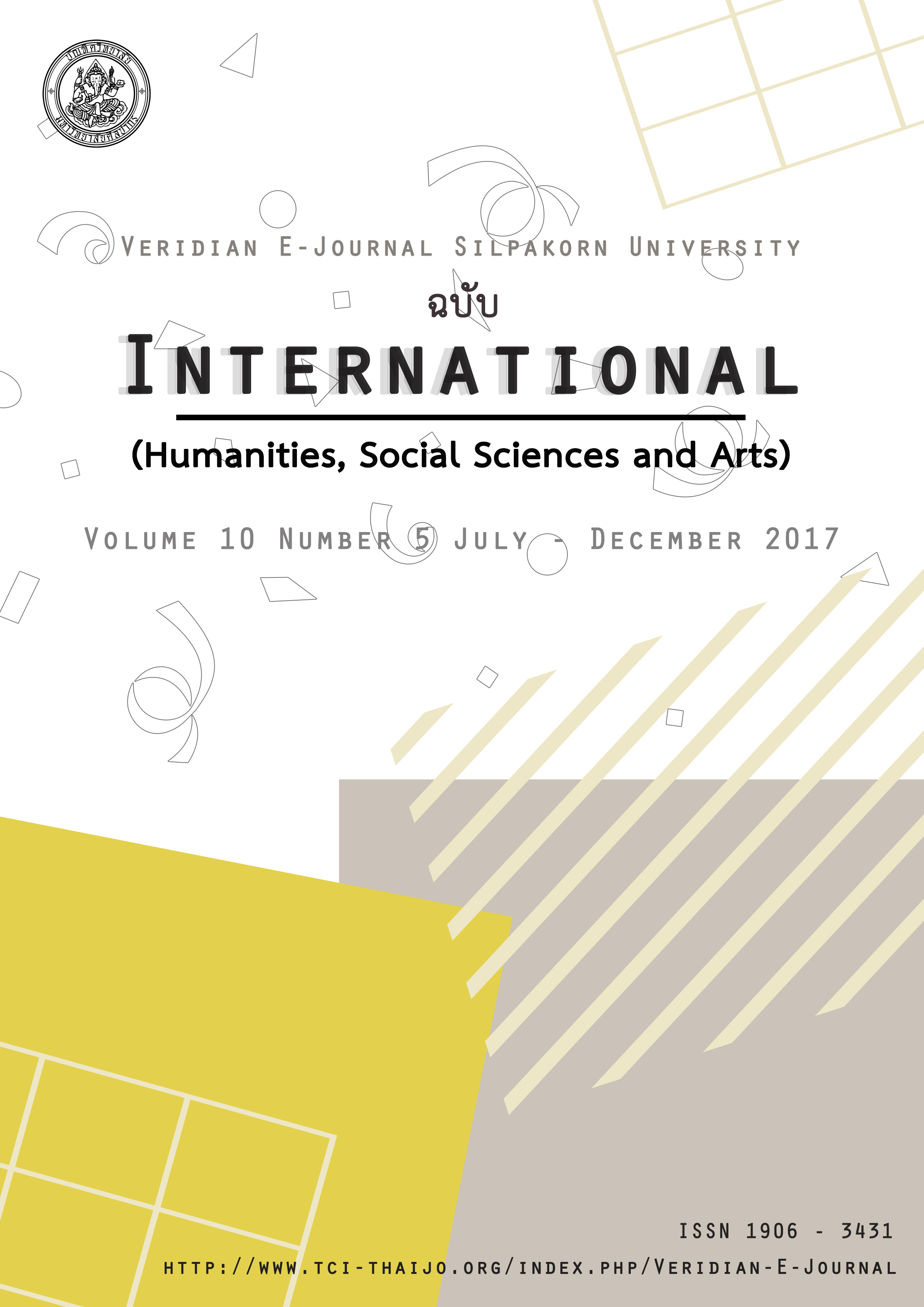Lifelong Learning Using the Cultural Capital of Nyah-Kur
Main Article Content
Abstract
The purposes of this research were to study the educational management with lifelong learning of the Nyah-Kur ethnic group in Ban Wang Kamphaeng and to study the cultural capital and knowledge of the traditions of the Nyah-Kur ethnic group in Ban Wang Kamphaeng and A qualitative research design was conducted using in-depth interviews and the participant observations of twenty-five informants. The results found that In terms of lifelong education; formal education provided local wisdom to the school system by using the learning center, the local curriculum and the integrat on of activities into all contents. Non-formal education provides the Nyah-Kur subject into the curriculum, through resources, exhibitions, presentations and ways of life, Nyah-Kur traditions, Nyah-Kur groups and their wisdom and aptitude, the provision of a learning center in the community and at the temples, the house of the village head and the town hall. Moreover, a textbook about the Nyah-Kur is also needed.The aspect of informal education, to provide learning in terms of ways of life, language customs and Nyah-Kur’ culture in everyday life. The integration of learning among Nyah-Kur with other ethnic groups and the establishment of community learning centers and he cultural capital of Nyah-Kur remaining for the Nyah-Kur of Ban Wang Kamphaeng were tangible cultural capital, such as the Wax Flowers Hall Procession and the Tone dance.The Intangible cultural capital was in the field of singing Pee-Rae-Rae, a belief in ghosts, and blowing leaves.

